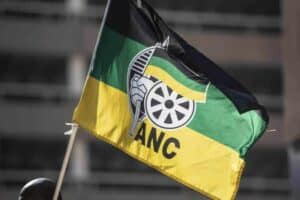The United Nations this year will seek more than $1.5 billion to respond to the worsening humanitarian crisis in the Democratic Republic of Congo (DRC), an official said Tuesday, warning the country was at a "breaking point".
“The size of the crisis in the Congo is really challenging our collective ability to respond”, said the UN migration agency’s chief envoy to the country, Jean-Philippe Chauzy.
The African giant has been plagued by near-relentless instability since independence from Belgium in 1960.
Even so, “no-one was expecting the humanitarian crisis to expand to such an extent last year,” Chauzy told reporters in Geneva.
The total humanitarian appeal for 2018 is $1.68 billion (1.37 billion euros), more than double the amount requested last year, he added.
“If we don’t get that level of funding people will die. I have to be clear about that,” Chauzy said.
His agency, the International Organization for Migration (IOM), said in a statement that the humanitarian crisis had hit a “breaking point”.
The stark warning came as three other UN agencies called for urgent action to stave off famine in Kasai, one of the country’s most troubled provinces.
“Time is running out to save hundreds of thousands of lives”, said a joint statement from the World Food Programme (WFP), children’s agency UNICEF, and Food and Agriculture Organization (FAO).
Violence erupted in Kasai when a tribal chieftain known as the Kamwina Nsapu, who rebelled against President Joseph Kabila’s regime, was killed in September 2016.
Now there are 3.2 million people in the region facing severe food shortages, only 400,000 of whom received assistance last month, the statement said.
WFP’s country chief in the DRC, Claude Jibidar, warned that “a major famine” could hit Kasai unless donor support increases.
In 2017, the UN’s Office for the Coordination of Humanitarian Affairs (OCHA) requested $812.5 million for humanitarian aid in the DRC, but received only $427.8 million — a shortfall of 47 percent.
Another crisis unfolding in the DRC is in the country’s east, where armed groups are active in North Kivu and South Kivu, two huge provinces which border Uganda, Rwanda, Burundi and Tanzania.
Kabila, in power since 2001, did not step down when his constitutional term in office expired in December 2016, a move that further stoked the crisis. His government has agreed to hold elections by the end of this year.
“The uncertainty about the electoral process… is a Damocles Sword of the DRC and fuelling in many ways the conflict and the uncertainty throughout the country”, said IOM’s Chauzy.






